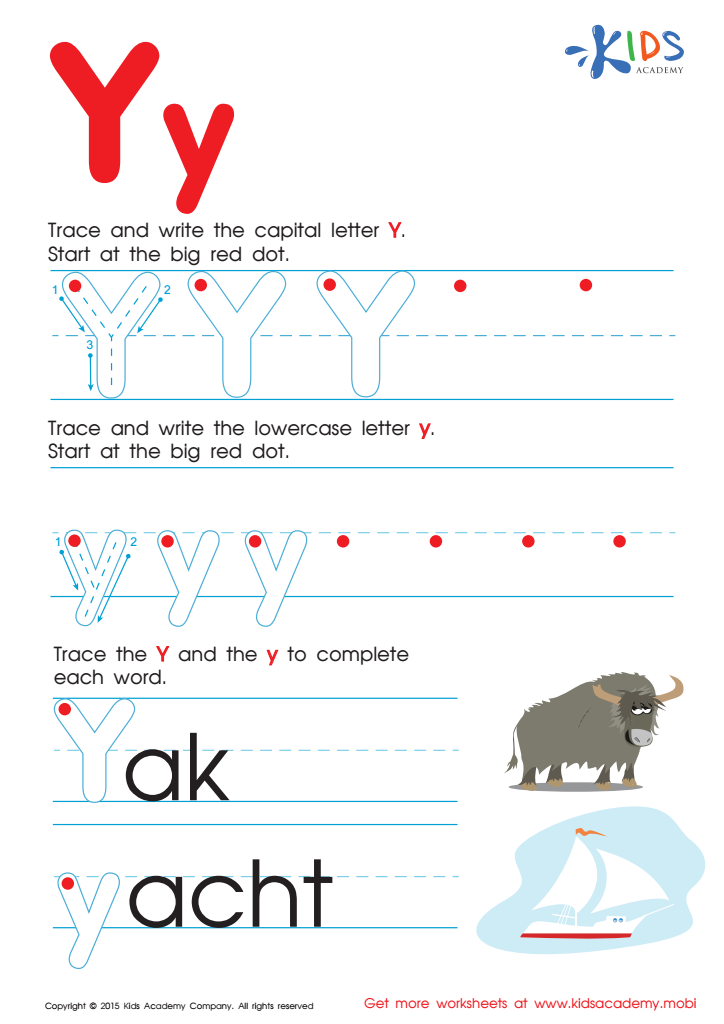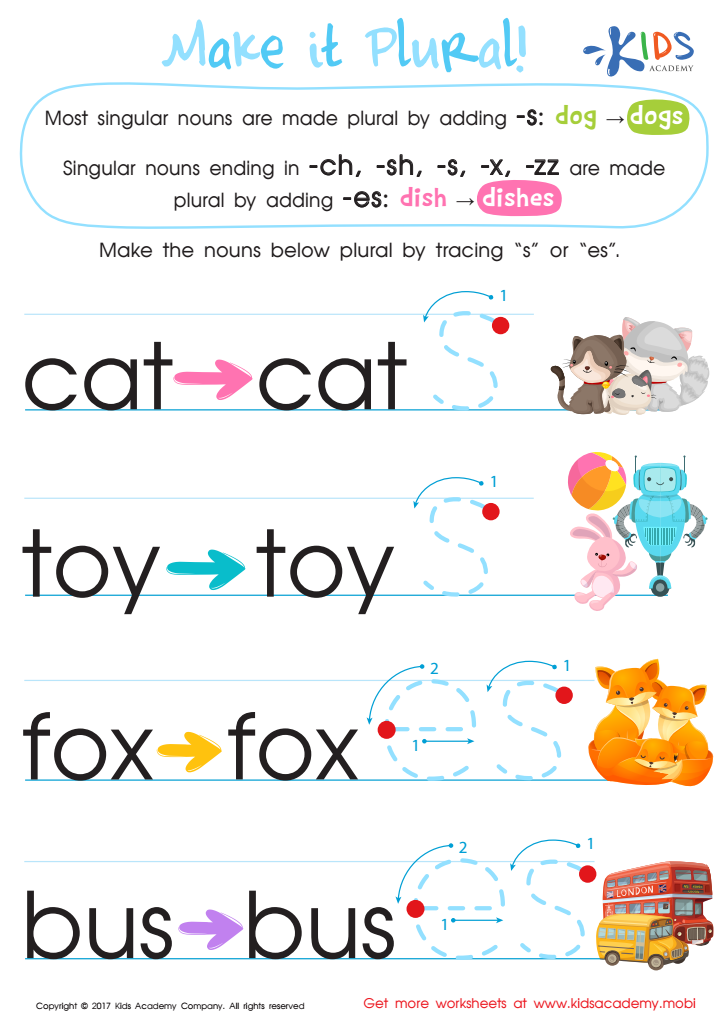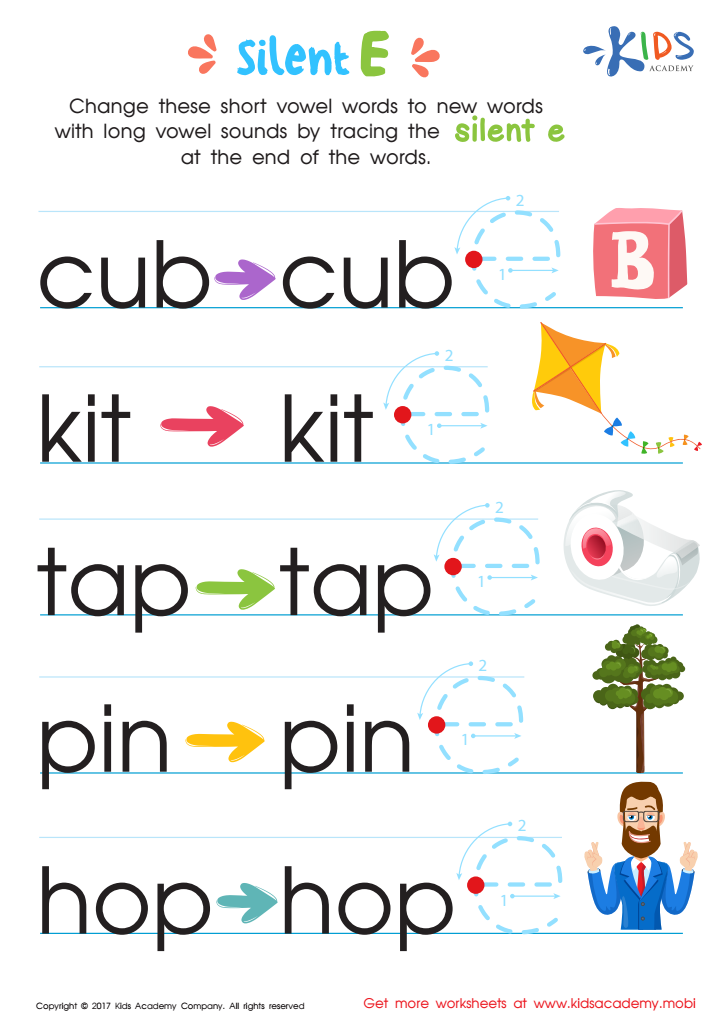Vocabulary enhancement Tracing Letters Worksheets for Ages 5-7
3 filtered results
-
From - To
Boost your child's language skills with our "Vocabulary Enhancement Tracing Letters Worksheets for Ages 5-7" at Kids Academy. Specially designed for young learners, these worksheets combine letter tracing and vocabulary exercises to enhance reading, writing, and comprehension skills. Each worksheet features engaging activities that help children recognize and trace letters while learning new words in a fun, interactive way. Perfect for building a strong foundation in language arts, these worksheets support cognitive development and advance fine motor skills, making learning enjoyable and effective. Start your child's educational journey today with our expertly crafted tracing letters worksheets!


Letter Y Tracing Page


Make it Plural Worksheet


Silent E Words Worksheet
Vocabulary enhancement tracing letters is invaluable for children ages 5-7 as it lays a robust foundation for their academic development and overall communication skills. During these formative years, children's brains are particularly receptive to learning new concepts, and integrating vocabulary exercises with letter tracing fosters motor skills while enhancing cognitive capabilities. Tracing letters helps young learners solidify their knowledge of the alphabet, connecting visual symbols to sounds, and ultimately, to words and meanings.
As children trace and learn new words, they're exposed to a broader lexicon, which aids in improved reading comprehension, better writing ability, and more effective verbal communication. Developing a rich vocabulary allows children to express themselves more clearly and understand instructions, stories, and information more accurately. It also sparks curiosity and a love for learning, as children are more likely to ask questions and seek knowledge when they understand the language used to convey it.
Moreover, vocabulary enhancement through such activities supports social-emotional development. As children become more proficient in using language, they gain confidence in interacting with peers and adults, encouraging better social integration and cooperative play. Parents and teachers play crucial roles by providing structured and engaging activities, ensuring that learning to trace letters becomes a joyful and productive part of early education.

 Assign to My Students
Assign to My Students





















